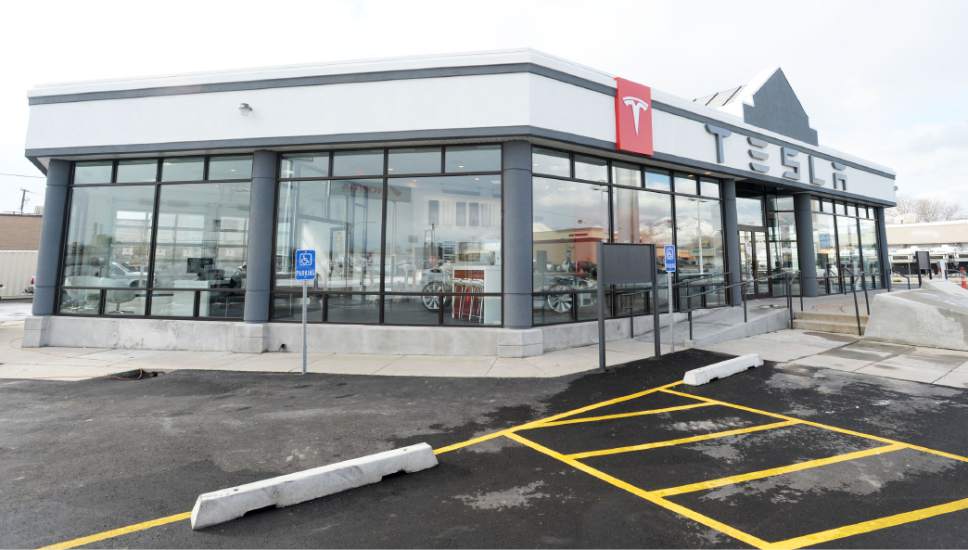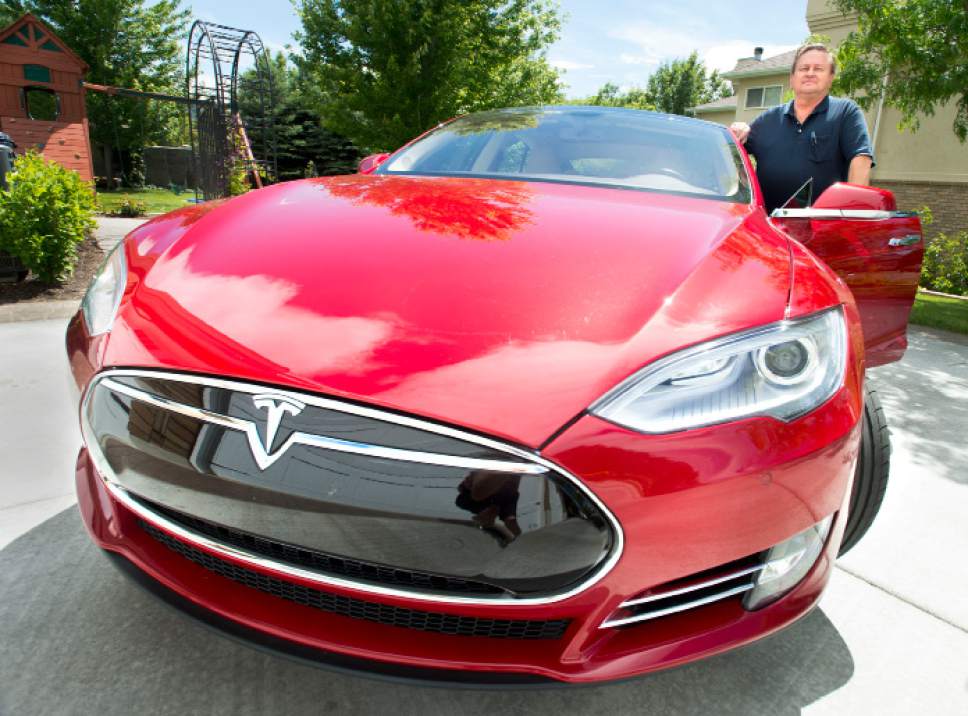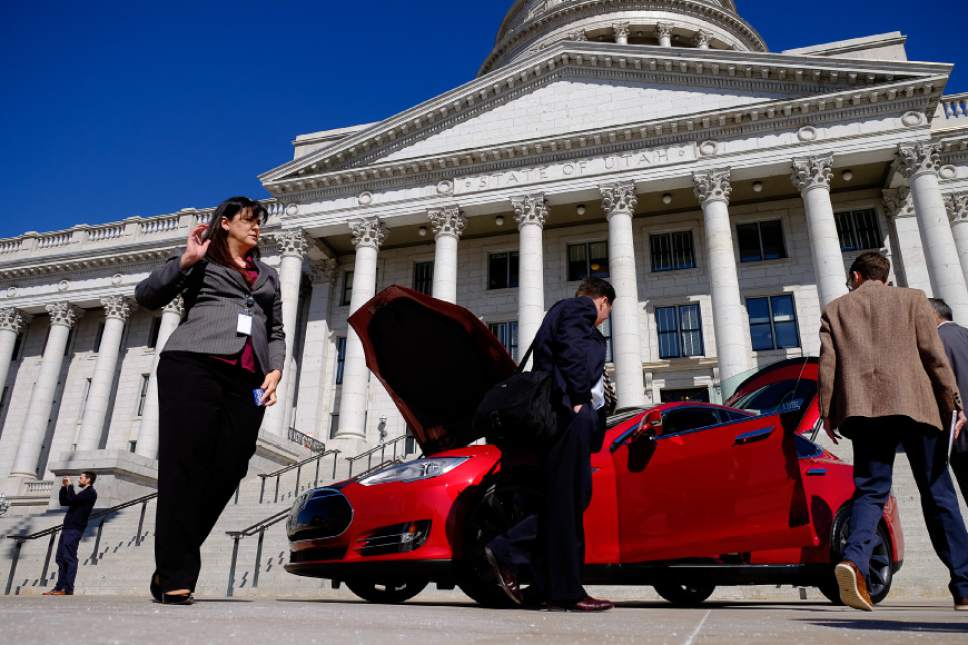This is an archived article that was published on sltrib.com in 2016, and information in the article may be outdated. It is provided only for personal research purposes and may not be reprinted.
Attorneys for Tesla Motors asked the Supreme Court on Monday to rule that Utah should not be able to block the company from selling its electric cars directly to consumers without going through a third party.
State regulators have denied Tesla a license to sell its vehicles in Utah for more than a year, contending that the company is not complying with laws that require car manufacturers to enter into franchise agreements with third-party dealers in order to sell new cars in the state.
Utah and many other states have long required car manufacturers to sell their cars through dealerships, believing that the dealers can provide a layer of protection and negotiating leverage to consumers. At the same time, the state has franchise protections in place to keep dealers from being bullied by the carmakers.
The result of the two laws in tandem, Justice Christine Durham pointed out Monday, is a total ban on manufacturers selling directly to Utah consumers.
Tesla had built a gleaming new showroom in South Salt Lake and hoped to begin selling vehicles directly to consumers in March 2015, but the state Motor Vehicles Enforcement Division denied the company a license and it has served only as a charging station and showroom. Utah customers who want a Tesla still have to order their car online.
In both the 2015 and 2016 legislative sessions, attempts were made to tweak the law to accommodate Tesla, but the car dealers beat back the effort with the help of other car manufacturers who said changing the law to help Tesla would put them at a distinct disadvantage.
Since negotiations blew up last March, there has been no progress on legislation, said Rep. Kim Coleman, R-West Jordan, as Tesla's lawsuit challenging the state's interpretation of the dealership requirement made its way through court.
On Monday, the justices provided no clear indication how they would rule, but the case seems to come down to how much deference the court would give to the Legislature to regulate the auto sales and whether — as Tesla argued — they complied with the law by setting up a separate entity, Tesla Utah, to serve as its dealership.
Justice Deno Himonas questioned whether car dealers are really being protected by the franchise requirement if Tesla owns its own dealership because, presumably, the parent company wouldn't want to harm its own interests.
"Where is the incentive? They're only harming themselves. They own 100 percent of the stock of the company," Himonas said. "They're not franchising to anybody, is the point. They're not McDonald's selling franchises."
But Utah Deputy Solicitor General Stanford Purser said that the law is in place to protect all of the dealerships and could be undermined if Tesla gets a pass on the requirements. "The state has an interest in maintaining the integrity of that chosen model," he said.
The company has run into similar legal hurdles in other states. New Jersey, for example, changed the law to allow Tesla's business model. In Arizona, the company sued and won.
"We sell across the whole world, including China, all through Europe, all through Asia. There're only four places in the world we haven't been able to sell direct — Utah, Michigan, Texas and Connecticut," said Todd Maron, general counsel for Tesla Motors. "Utah is a very important market. It's a very entrepreneurial place. ... It really, I think, is wrong that we can sell in China and not in Utah."
The court will likely take several weeks to issue its ruling.
Twitter: @RobertGehrke







